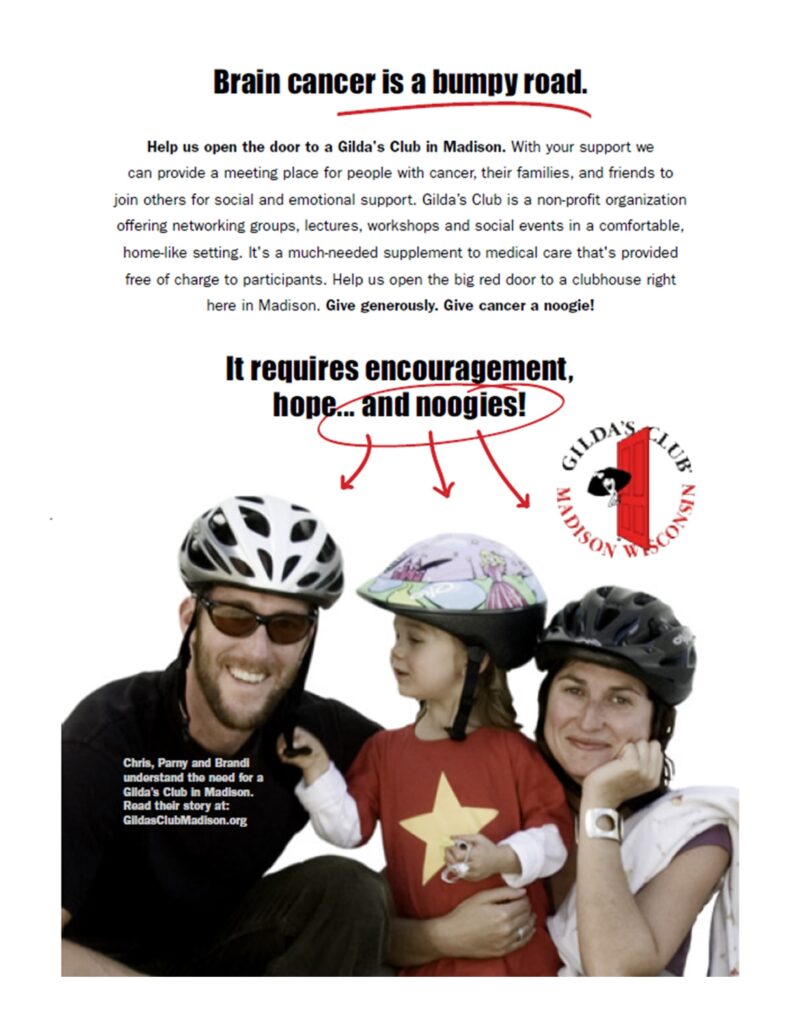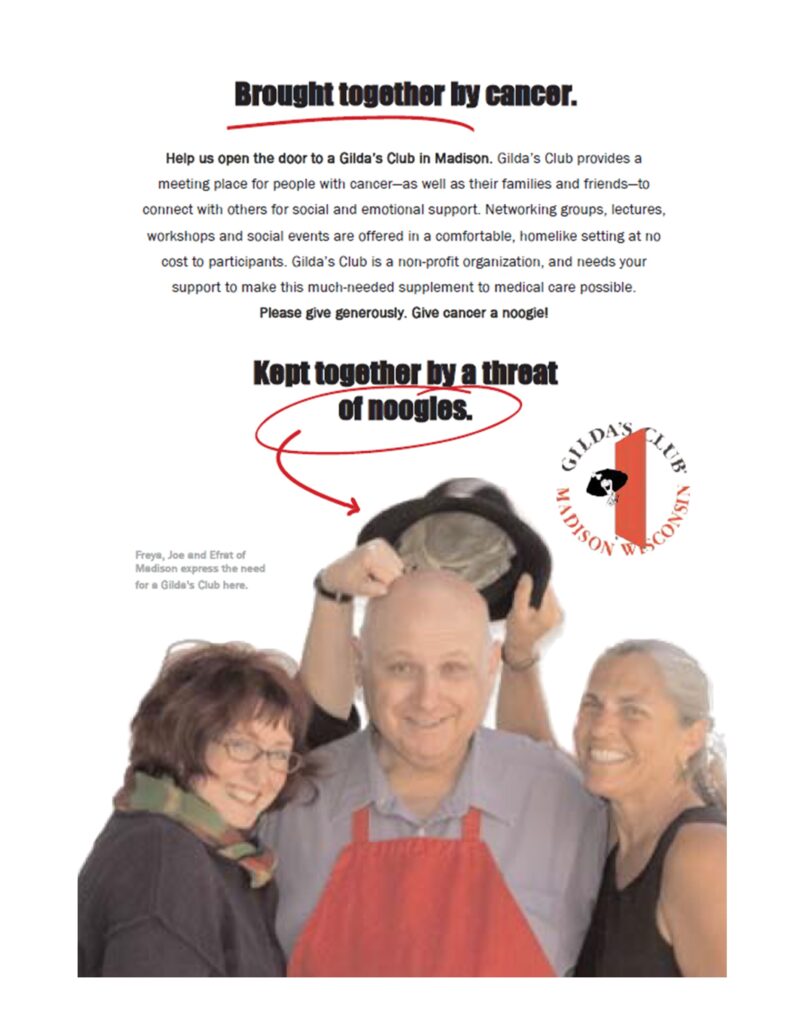Facing a diagnosis like cancer can feel profoundly lonely. Even if you’re surrounded by loved ones and expert medical care, it’s hard to feel like you belong. And, sometimes, you feel more like a patient than a person. But the early founders of Gilda’s Club Madison knew there had to be a better approach to life after a diagnosis. Each influenced by their own experiences with cancer, the early founders set out to create something better for those living with cancer and their families. Something beyond any medical treatment or support group. A community where you could have tough conversations. And you could also laugh, cry, and feel whatever you were feeling without worry or guilt.
Finding Each Other
In 2001, Efrat Livny visited Gilda’s Club Detroit. “The place was so inviting, and there was so much color and life,” shares Livny. As an ovarian cancer graduate–as she prefers to call herself –she recognized how powerful it can be for people to come together and find support. When she returned to Madison she was determined to create a similar space where people could gather and feel like they belonged. Unbeknownst to her, there were others in Madison thinking along the same lines.
“I kept thinking, ‘there has to be a better way to handle this when people are going through these things,’” shares Pat Anderson, who was 41 when she was first diagnosed with breast cancer.
Anderson tried attending a local support group but didn’t feel like it was the right fit. When she arrived in Madison to care for her mother, who was in hospice, she met Livny, who shared Anderson’s longing for something more.
“When I heard about what Gilda’s Club was, I said, ‘That’s it. That’s exactly what we need.’ And so we started working on it,” recalls Anderson.
Anderson and Livny became the nucleus of this new group and met with members of the community who were also drawn to this whole-person approach to living with cancer.
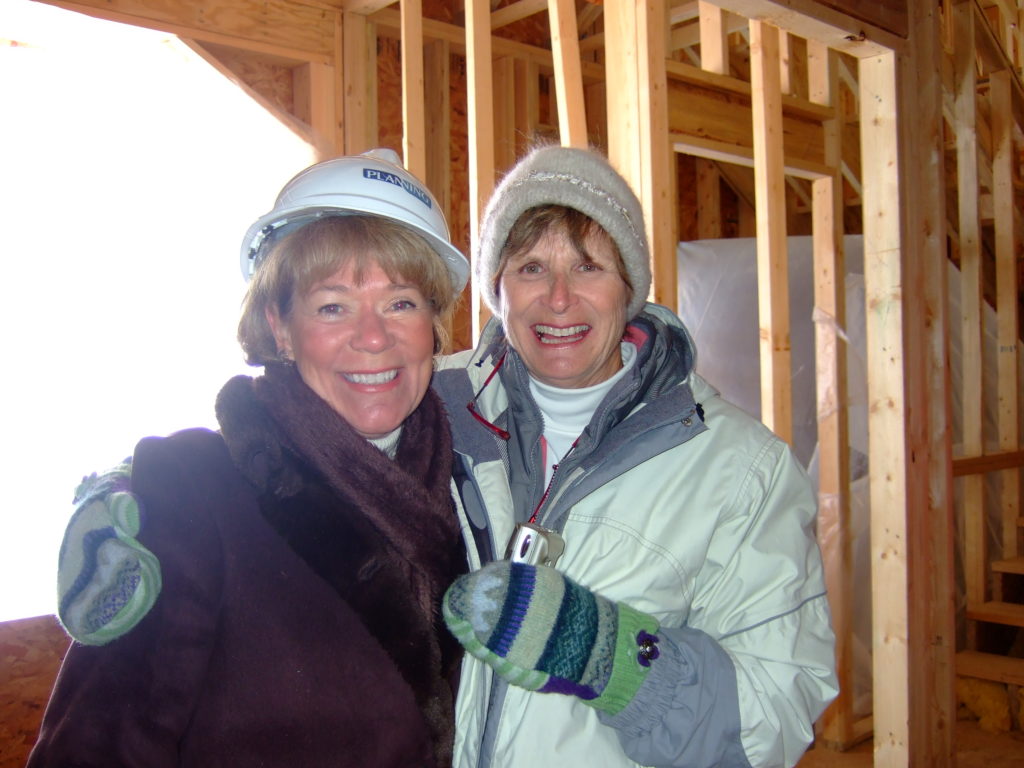
After completing treatment for stage 4 ovarian cancer, retired English teacher and self-described inveterate volunteer Amy Nickles met Anderson in choir rehearsal at the First Unitarian Society of Madison. She quickly became a champion for the cause and acted as Volunteer Coordinator for what was originally known as Madison Friends of Gilda’s in 2002.
Brandi Funk’s husband, Chris, was facing brain cancer when she became involved with the early founders. As a mom in her early 30s and caregiver, Brandi was the youngest of the group. “I was new to Madison and felt honored to be part of something special with these strong, amazing women,” she explained. Brandi understood first-hand the need for family cancer support and put her energy into raising awareness about Gilda’s Club. “I’m proud of what we built and everything the community has done to sustain it. The need for family support isn’t going anywhere, and what Gilda’s Club offers is a truly beautiful thing,” Brandi shared. She and Chris later started their own non-profit, HEADRUSH, which continues today as a Brain Tumor Professorship at UW in Chris’ memory.
When Freya Reeves was diagnosed with cervical cancer on her 40th birthday in March 1985, she and her family lived in Chicago. At that time, Reeves shares, no groups or organizations specifically addressed what she was experiencing or had anything to offer her family. “I had support; I just didn’t have support from people who had experienced this themselves,” Reeves explains. “It’s so different when you can talk to someone who’s been through it.” After moving to Madison, Reeves connected with Anderson through a mutual contact at the UW Carbone Cancer Center and began meeting with the small but growing group in Anderson’s home.
Pastor Todd McVey, who had taken a hiatus from full-time ministry at the time, met with Anderson while working as the community relations director for hospice care. “Pat described what they were trying to do with the start of a Gilda’s Club, and I thought it was a great idea,” he says with a smile. He was drawn to the social and supportive elements of Gilda’s Club and the humor. “Being able to laugh together, we have to be able to do that in the midst of pain and hurt.”
As lifelong Madison resident Peggy Lucas was getting ready for work one morning in the spring of 2002, a local news segment featuring Madison Friends of Gilda’s piqued her interest. “I thought this would be a good way to pay back the city for all the blessings that I’ve had here and to give people who have cancer something that I didn’t have, and that was the support that is so critical to get you through.” After a call to Anderson, Lucas was placed on the fundraising committee.
One Monday evening in the early fall of 2002, Lucas received a call from Cindy Alvarez. The call was in response to a letter Lucas sent to Alvarez and her husband and former UW football coach and athletic director, Barry Alvarez. The Alvarez’s were happy to jump in and lend support, and the puzzle pieces were steadily falling into place.
Hitting the Road
The early founders set out to visit different locations to get a better feel for the various Clubs within the Gilda’s network. “Whoever went anywhere, if there was a Gilda’s Club in sight, we visited!” recalls Livny. From encountering peacocks in Florida to visiting a historic waterfront mansion in Iowa and a classic brownstone in Chicago, each location had its unique personality. Livny and Lucas both laugh while recapping a visit to a potential downtown Madison site that included a sighting of a passerby casually wearing a python around their neck.
After visiting nine locations throughout the U.S., Cindy Alvarez developed a passion for Gilda’s that she holds close to this day. Each visit helped the founders appreciate the diversity of Gilda’s Clubs and understand that they could create a Club that was the right fit for Madison.
Navigating Obstacles
The journey to making Gilda’s Club Madison a reality had its challenges, including initial resistance from the then-corporate office, fundraising, and relentless paperwork. But a meeting at the Gilda’s Club Worldwide affiliate leadership conference held in New York City in May 2005 would be an uplifting turning point for the founders and a reminder that they had something worth fighting for.
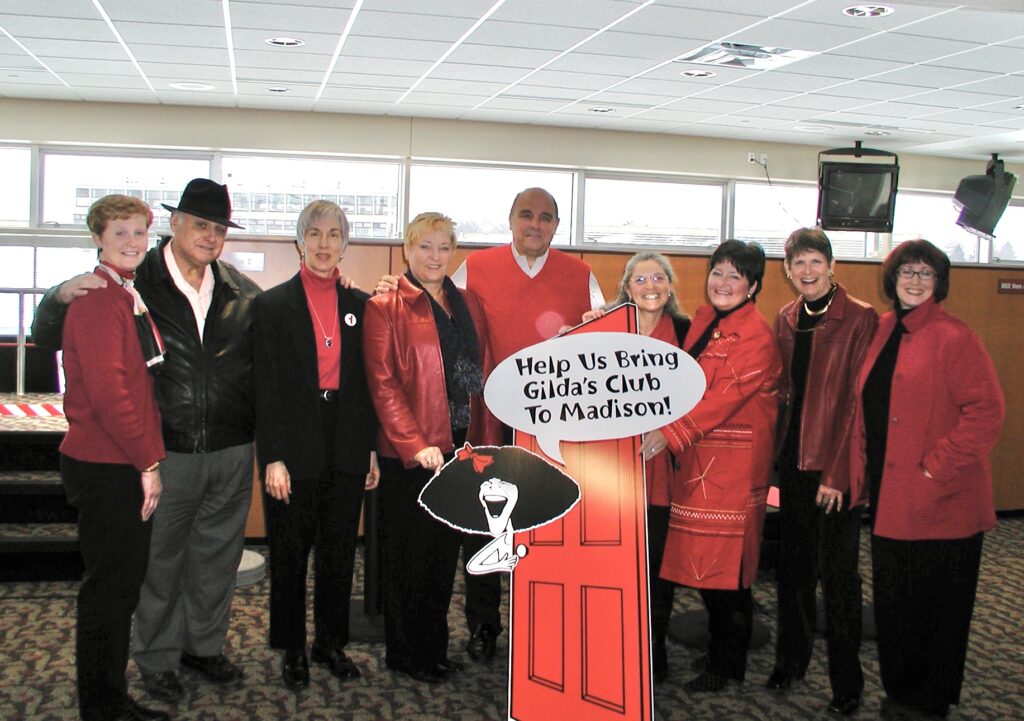
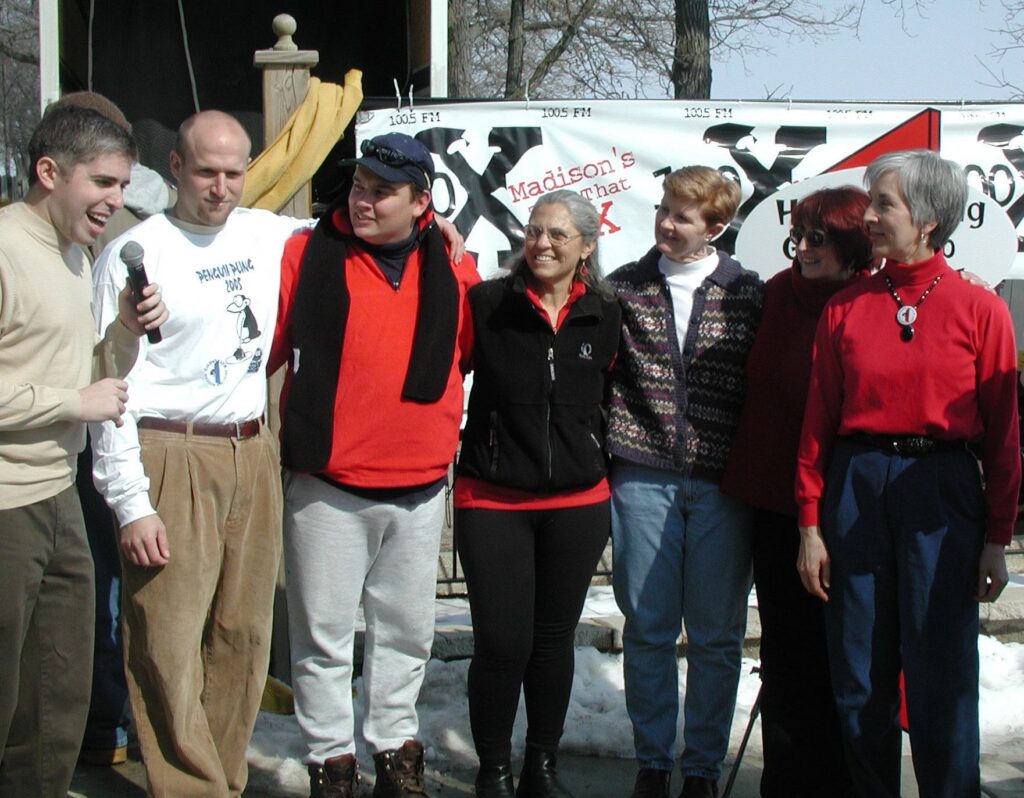
In 2006, clubhouse planning picked up speed when Barry and Cindy Alvarez personally made a challenge donation and then secured a generous gift of land in Middleton from the Livesey Company. While many of the early founders envisioned a clubhouse embedded in the heart of downtown Madison, this land donation ensured stability. Architects from Iconica began designing a warm, welcoming space that would meet the therapeutic and social needs of cancer patients and their families. Naming opportunities within the clubhouse sparked interest and giving continued to accelerate.
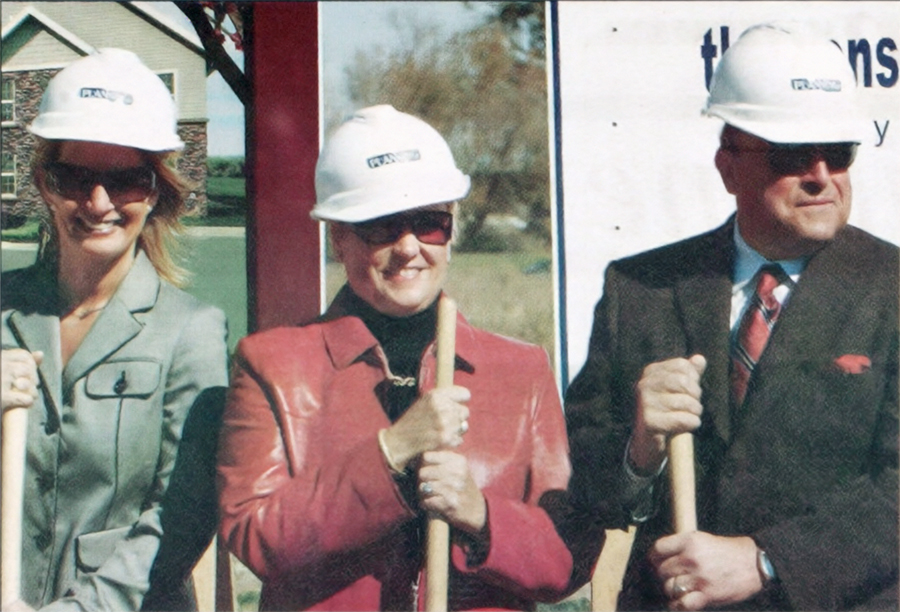
In the fall of 2008, Gilda’s Club Madison opened and began supporting families. Over the years the organization has served thousands of people, meeting the needs of families impacted by cancer in countless ways.
Humor and Endless Noogies
It’s tough to mention Gilda Radner without talking about comedy and humor, even through challenging times. The early founders nurtured the comedic spirit of Gilda’s Club through standup and musical fundraisers and an endless supply of “give-cancer-a-noogie” jokes. Today, laughter is often heard ringing in the halls of the clubhouse.
Building a Legacy of Hope
Each founder’s passion and perseverance led them on a path to finding each other and creating a community dedicated to inclusivity, healing through learning and activities, and hope.
In addition to the early founders and supporters mentioned here, countless other volunteers from the community contributed their time and skills to make Gilda’s Club Madison a reality. It took many hands and hearts to create Gilda’s Club as it exists today.
The founders laid a foundation and planted seeds that have been growing ever since. Thanks to their persistence and vision, Gilda’s Club Madison is a cherished and essential resource in the Madison community, offering an environment where individuals can be their authentic selves and experience a sense of belonging. So that no one faces cancer alone.
Written by Maggie Thorison based on interviews with Amy Nickles, Efrat Livny, Pat Anderson, Peggy Lucas, Freya Reeves, Todd McVey, Brandi Funk, and Cindy Alvarez.

